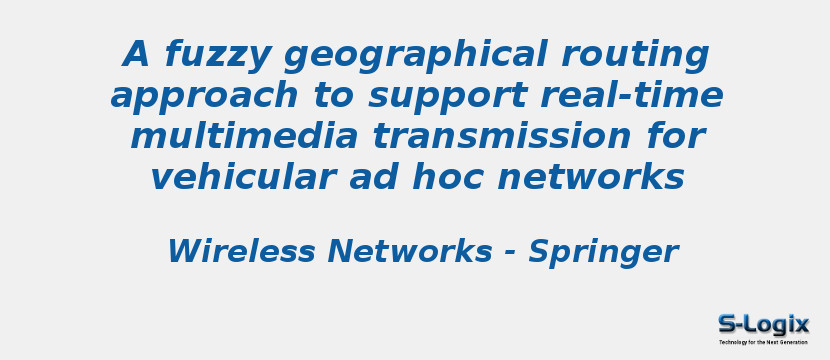Research Area: Vehicular Ad Hoc Networks
Vehicular ad hoc networks known by their greatly active topology have given rise to new challenges related to routing protocols, issues of less concern in infrastructure-based networks or even in mobile ad hoc networks. Indeed, the high revocability of network topology makes the satisfaction of driver’s requirements very arduous, especially with multimedia applications that need strict quality of service (QoS) support. The main purpose of this paper is to promote real time video traffic by maximizing user gratification while keeping a good QoS. Thus, based on the well-known greedy perimeter stateless routing (GPSR) protocol, we propose a new approach called fuzzy geographical routing (FzGR) that incorporates two fuzzy logic usages. The first takes into consideration three input parameters of QoS: the delay, the size of buffer and the throughput, while it outputs a single relevant metric to prioritize the next-hop with lower concern. The other fuzzy system aims at preserving the concept of basic GPSR by considering the distance measure between each next-hop and the final destination. The proposal has been evaluated and compared to the GPSR using a rigorous metrics analysis regarding QoS and quality of experience. Our extensive experimental results using several simulators (e.g., NS-2, VanetMobiSim and Evalvid), show that FzGR has the ability to increase the performance of the network.
Keywords:
Author(s) Name: Imane Zaimi, Abdelali Boushaba, Zineb Squalli Houssaini and Mohammed Oumsis
Journal name: Wireless Networks
Conferrence name:
Publisher name: Springer
DOI:
Volume Information:
